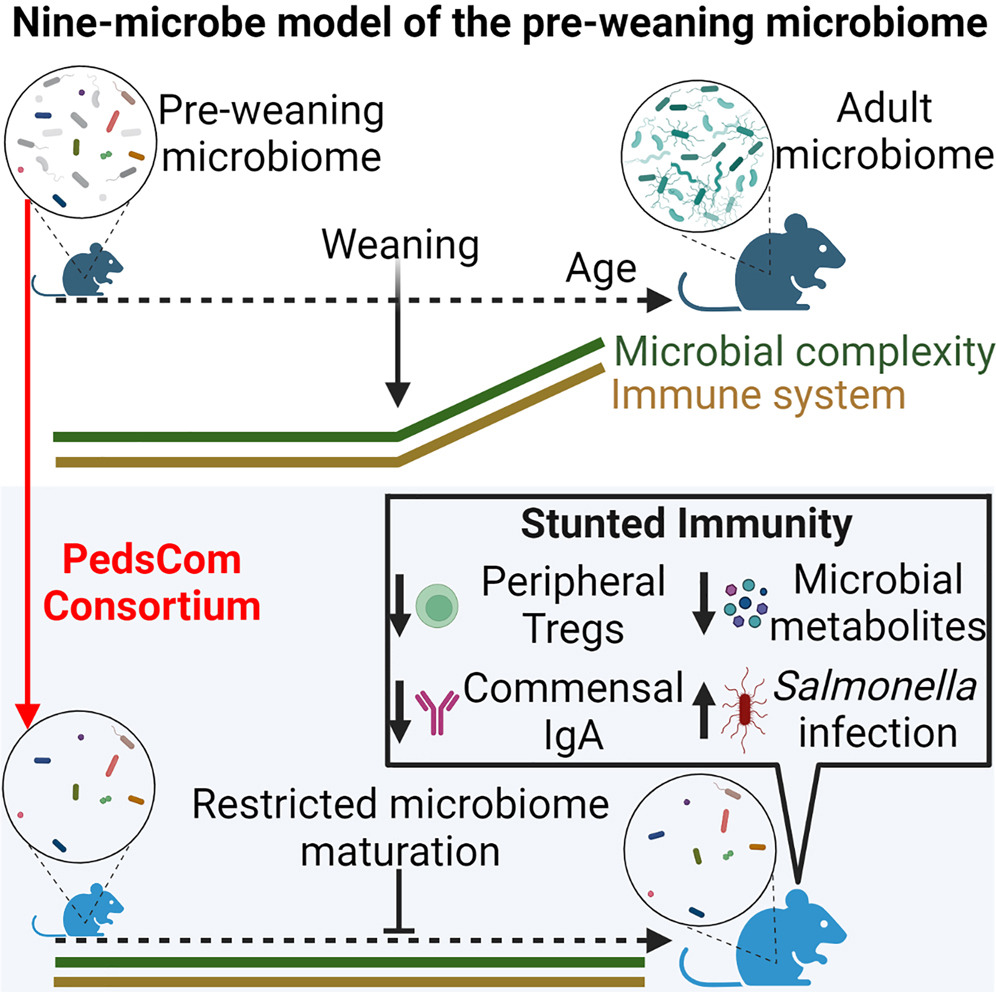Arresting Microbiome Development Limits Immune System Maturation and Resistance to Infection in Mice

Disruptions to the intestinal microbiome during weaning lead to negative effects on host immune function. However, the critical host-microbe interactions during weaning that are required for immune system development remain poorly understood.
Lubin et al. found that restricting microbiome maturation during weaning stunts immune system development and increases susceptibility to enteric infection.
They developed a gnotobiotic mouse model of the early-life microbiome Pediatric Community (PedsCom). These mice develop fewer peripheral regulatory T cells and less IgA, hallmarks of microbiota-driven immune system development. Furthermore, adult PedsCom mice retain high susceptibility to Salmonella infection, which is characteristic of young mice and children.
Altogether, this work illustrates how the post-weaning transition in microbiome composition contributes to normal immune maturation and protection from infection. Accurate modeling of the pre-weaning microbiome provides a window into the microbial requirements for healthy development and suggests an opportunity to design microbial interventions at weaning to improve immune development in human infants.
Targeting Microbiota 2023 Conference this October will highlight the role of gut microbiota in immune system development and maturation. You can submit a related abstrtact here.
Photo Credit: Lubin et al. Cell Host & Microbe (2023)
Media contact:
International Society of Microbiota
[email protected]
Targeting Microbiota 2023 Congress
October 17-19, 2023
Website | LinkedIn | Facebook
























































